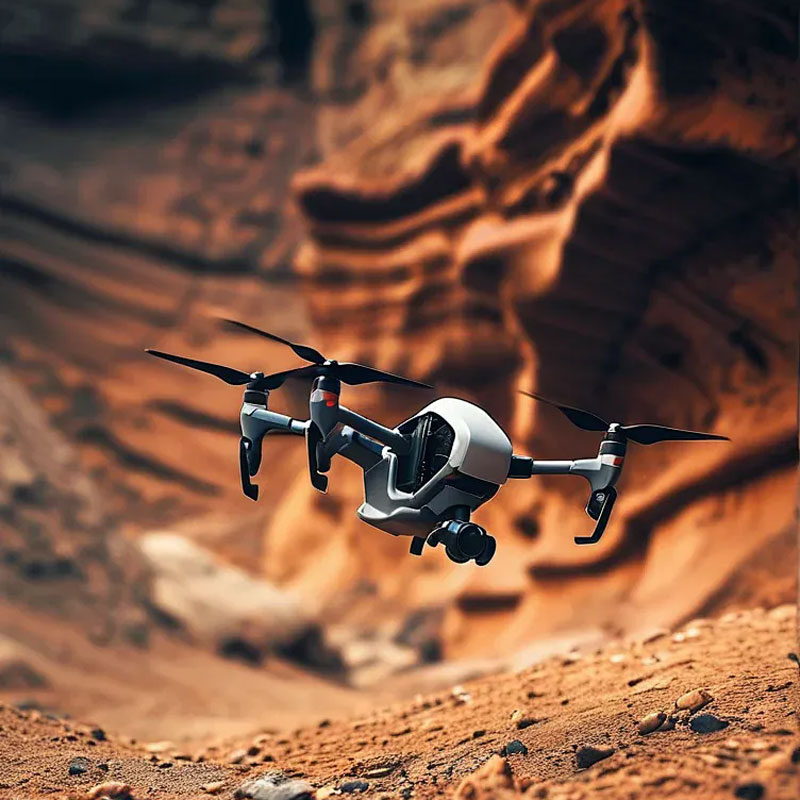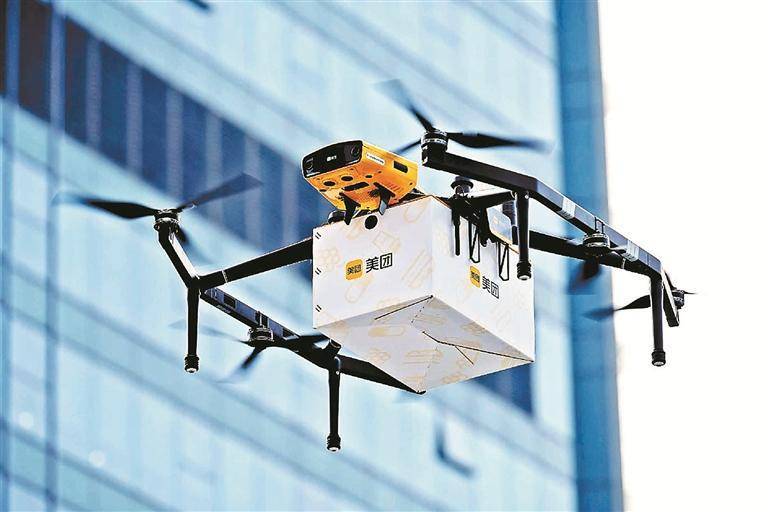Agricultural Advancements
Drones have become crucial in modern agriculture, facilitating practices such as precision farming. Equipped with sensors and cameras, they gather data on crop health, irrigation levels, and soil conditions, enabling farmers to make informed decisions and optimize production. This application of drone technology not only enhances yield but also promotes sustainable farming practices by minimizing waste and resource usage.
Farmers, harnessing UAVs (Unmanned Aerial Vehicles), can address challenges like pest control and nutrient delivery with heightened precision, revolutionizing agricultural methodologies. As a result, drone technology reduces operational costs and increases overall efficiency in cultivating and maintaining crops. With the global population on the rise, these tools pave the way for meeting future food demands.
Logistics and Delivery
In logistics, drones offer astonishing potential by cutting delivery times and costs. Companies are exploring the possibilities of employing UAVs for last-mile deliveries, particularly in urban areas where traffic congestion is prevalent. These aerial devices facilitate straight-line travel routes, thereby reducing delivery times and enhancing customer satisfaction. With advancements in drone technology, the once futuristic concept of drone deliveries is becoming a tangible reality, opening new vistas for supply chain innovations and logistics efficiency.
Moreover, drones provide significant benefits in inaccessible or remote areas, executing deliveries swiftly without the need for traditional road infrastructure. Embracing drone technology in logistics can thus address inefficiencies and create new service opportunities, transforming the transportation sector in stride with technological progress.

Healthcare Revolution
The healthcare industry is another beneficiary of drone technology, from rapid transportation of medical supplies to emergency response capabilities. Drones enable fast, efficient delivery of medications, vaccines, and equipment to remote or disaster-stricken regions, significantly impacting timely healthcare delivery. Their application extends to real-time monitoring and data collection, assisting healthcare professionals in making prompt, informed decisions. With drone technology in healthcare, the quality of service and patient outcomes improves notably.
Additionally, drones can be utilized in search and rescue operations, providing crucial aerial perspectives that aid in locating injured individuals quickly and accurately. This innovative use saves lives and mitigates risks faced by search teams during challenging circumstances.
Entertainment and Media
 Drone technology plays a significant role in the entertainment and media industries, particularly in aerial videography and photography. Offering unique perspectives and dynamic footage, drones have transformed cinematic techniques, enhancing visual storytelling and audience engagement. Broadcasters and media companies utilize drones to capture live events from angles previously unattainable, delivering immersive experiences to viewers worldwide. With continual improvements in performance and affordability, these applications promise further innovation in content creation and delivery methods.
Drone technology plays a significant role in the entertainment and media industries, particularly in aerial videography and photography. Offering unique perspectives and dynamic footage, drones have transformed cinematic techniques, enhancing visual storytelling and audience engagement. Broadcasters and media companies utilize drones to capture live events from angles previously unattainable, delivering immersive experiences to viewers worldwide. With continual improvements in performance and affordability, these applications promise further innovation in content creation and delivery methods.
While traditionally limited to video production, drones now contribute to live-event coverage, promotional activities, and creative advertising, showcasing their versatility and transformative potential within the entertainment domain.
Overcoming Challenges
Despite the myriad benefits, drone technology faces challenges including regulatory restrictions, privacy concerns, and technological limitations. Countries worldwide are developing frameworks to govern drone usage, balancing innovation with safety and privacy protection. Adapting to these regulations is crucial for industries seeking to exploit drone capabilities fully. Moreover, addressing battery life limitations and enhancing security measures are focal points in advancing drone technology.
Collaborative efforts between tech companies and regulatory bodies will play a pivotal role in overcoming these hurdles, ensuring drones continue to innovate and transform sectors.Frequently Asked Questions about Drone Technology
What industries benefit most from drones?
The agriculture, logistics, healthcare, and entertainment industries are among the most affected by drone technology, benefiting from its innovative applications and efficiency improvements.
How do drones impact agricultural practices?
Drones enhance agricultural practices by providing detailed data on crop health, optimizing resource use, and implementing precision farming techniques for better yields and sustainability.
What are the primary challenges facing drone technology?
Drones face challenges like regulatory compliance, privacy concerns, technological limitations such as battery life, and the need for improved security measures, which require ongoing attention and innovation.
